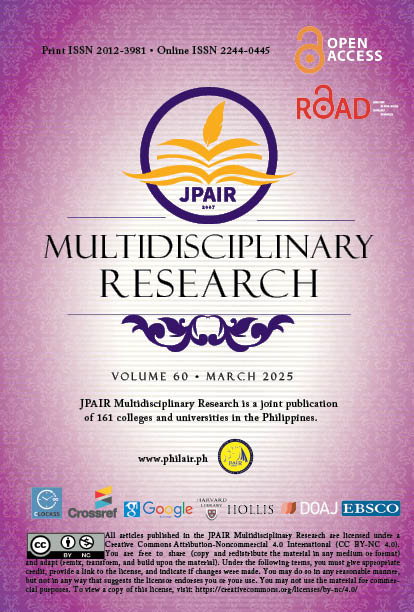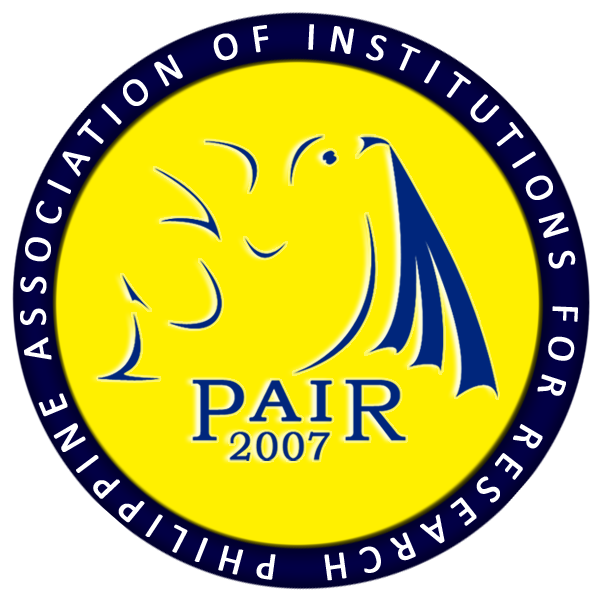ChatGPT’s Usability in Expository Writing in AI-Enabled Classrooms: Perceptions of Tertiary Students and Teachers
DOI:
https://doi.org/10.7719/jpair.v60i1.931Keywords:
Education, AI-powered digital writing tools, AI-enabled classroom, writing competence, student perceptions, teacher perceptions, expository writing, descriptive, PhilippinesAbstract
The growing integration of AI-powered digital writing tools (AI-DWTs) in writing instruction underscores the need to examine their impact on teaching pedagogies within technology-mediated language learning (TMLL) environments. This study investigates students' and teachers' perceptions of ChatGPT, an AI-driven writing tool, in an AI-enabled classroom. The study utilized a descriptive quantitative design with 60 student participants and three teacher participants. The study collected data through survey questionnaires following a series of interventions during writing classes. The results reveal that both students and teachers view ChatGPT as a valuable tool for expository writing. Students reported that ChatGPT is helpful for brainstorming and organizing ideas during the pre-writing stage, structuring the introduction, body, and conclusion during the writing stage, and improving grammar during the post-writing stage. Additionally, they appreciate its ease of use and its role in boosting writing confidence. Teachers recognize ChatGPT's positive impact on the writing process, particularly in structuring essays and refining grammar, yet acknowledge concerns about accuracy. Furthermore, they view its integration into writing tasks as beneficial for developing students' AI competence. These positive perceptions highlight the need for structured methodologies/pedagogies to effectively integrate AI-DWTs into writing instruction. Future research may focus on developing pedagogical strategies that ensure effective and ethical AI integration to foster writing competence and critical interactions with AI-DWTs in writing classrooms.
Downloads
References
Austria, F. Z., Camagay, E. B. A., Domasing, M., Gelido, A., Libatique, C. V., & Cabutotan, V. M. (2023). Extent of Influence of Using AI Chatbots in the Writing Skills of BSE Students of Pangasinan State University – Lingayen Campus. Southeast Asian Journal of Science and Technology, 7(1), 39-47. https://www.sajst.org/online/index.php/sajst/article/view/273
Caws, C., & Hamel, M. J. (2016). Language-learner computer interactions: Theory, methodology and CALL applications. John Benjamins Publishing Company.
Commission on Higher Education. (2025, March 1). List of CHED priority Courses. CHED Scholarship. https://chedscholarship.com/list-of-ched-priority-courses/
Downloads
Published
Issue
Section
License
Copyright (c) 2025 Nikko J. Domingo, Rachelle B. Lintao

This work is licensed under a Creative Commons Attribution-NonCommercial 4.0 International License.
Open Access. This article published by JPAIR Multidisciplinary Research is licensed under a Creative Commons Attribution-Noncommercial 4.0 International (CC BY-NC 4.0). You are free to share (copy and redistribute the material in any medium or format) and adapt (remix, transform, and build upon the material). Under the following terms, you must give appropriate credit, provide a link to the license, and indicate if changes were made. You may do so in any reasonable manner, but not in any way that suggests the licensor endorses you or your use. You may not use the material for commercial purposes.




















